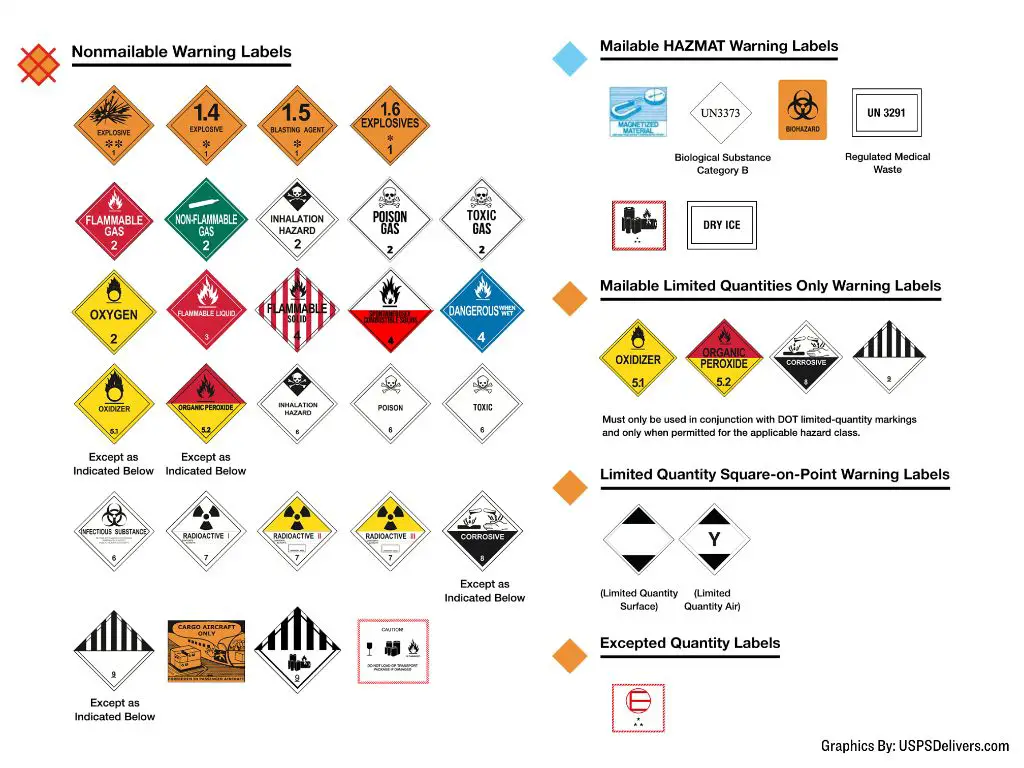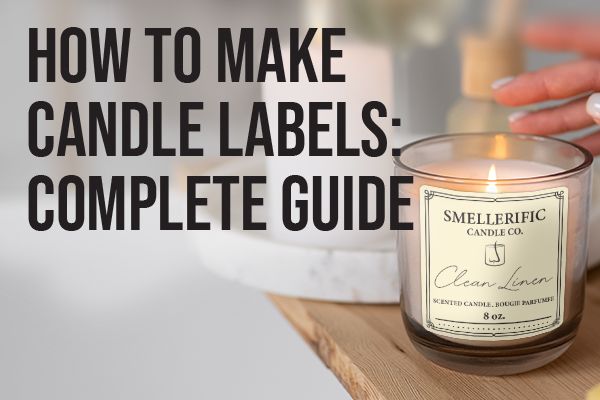Why Perfume Is Not Allowed In Mail?
Perfume and other fragrances containing alcohol have long been restricted and banned for shipment through the mail in many countries. The main reasons center around flammability, health hazards, and package integrity when containing liquids. This has impacted mail order retailers and consumers who wish to ship fragrances safely.
The United States Postal Service (USPS) prohibits mailing perfumes and other fragrances containing alcohol both domestically and internationally if sent by air. Ground transportation is allowed within the US only. The restrictions aim to mitigate risks associated with flammable materials in the mail system. However, the restrictions have been controversial and led to calls for evaluating changes to allow safe shipment.
Flammable Materials
Perfume contains alcohol and oils which make it highly flammable. Most perfumes have over 24% alcohol by volume, which can easily ignite when exposed to flames or sparks (Source). The flammable nature of perfume poses risks when transported in cargo holds of planes or trucks. If a perfume bottle were to leak or break open, the vapors could spread and be ignited by electrical equipment or sparks, causing a fire. Fires in cargo holds are extremely dangerous and hard to contain. The presence of perfume and other flammables in the mail system introduces an unnecessary hazard.
Health Hazards
Perfumes contain many chemicals that can irritate the eyes, nose, throat, and skin, leading to health issues for postal workers and recipients [1]. Fragrance chemicals have been linked to chronic health problems including cancer, with EPA studies identifying hazardous chemicals in over 95% of perfumes [2]. The most concerning chemicals in fragrances include:

- Phthalates – Linked to hormone disruption and developmental issues
- Limonene – Associated with skin irritation and asthma
- Linalool – Can cause skin and respiratory irritation
For those with sensitivities like asthma, migraines, and chemical intolerance, exposure to fragrance chemicals can trigger severe reactions [3]. Even for healthy individuals, fragrances have been shown to impact the nervous system and cause headaches [1].
Overall, the potential health risks posed by perfumes is concerning for postal workers who handle fragranced packages daily, as well as recipients. Safer alternatives that don’t put worker and consumer health at risk should be considered.
Package Integrity
Perfume presents challenges when it comes to ensuring package integrity and preventing leaks that could damage other mail. Perfumes and fragrances tend to have a liquid consistency that can seep through packaging if not properly contained. According to a discussion on Basenotes.com, “Mail order perfumes sit in non-climate controlled warehouses and trucks for extended periods of time before they reach your mailbox. Anything can happen en route – bottles can break, caps can come loose, boxes can get wet or crushed.”[1]
For this reason, perfume retailers and shippers need to take extra precautions to make sure perfumes are safely enclosed in leak-proof inner packaging such as sealed plastic bags. However, not all online sellers follow best practices for safe shipping of fragrances. As one Reddit user commented, “No one is expecting a vial or bottle to leak but it does happen unfortunately.”[2] When perfume leaks do occur and damage other mail products, it creates additional costs and complications for the postal service. The potential for leaks means perfume requires more careful handling than regular packages.
[1] https://basenotes.com/community/threads/mail-order-in-the-summer-can-it-damage-my-perfume.422774/
[2] https://www.reddit.com/r/fragrance/comments/14hcuor/fragrance_mail_hot_ruined_fragrance/
Regulations
The U.S. Postal Service places restrictions on mailing flammable, combustible, or hazardous materials like perfume for safety reasons. According to the USPS Domestic Mail Manual, perfumes containing alcohol may not be shipped using air transportation domestically or internationally. This includes Priority Mail Express and Priority Mail services, which use air transportation [1].
The regulations prohibit mailing perfumes containing ethanol alcohol, SD alcohol 40-B, alcohol denat, isopropyl alcohol, and other flammable alcohols. The USPS considers these hazardous materials that can potentially compromise transportation safety. Ground shipping perfumes domestically is allowed as long as they meet packaging standards. But shipping perfume internationally via global postal services like USPS is prohibited entirely [2].
Alternatives for Sending
While the USPS has strict regulations against mailing perfume, there are some alternatives for sending fragrances through other carriers. Private shipping companies like UPS and FedEx allow perfumes to be shipped domestically through their ground services. These carriers have procedures in place to properly handle hazardous materials like flammable liquids.
When using UPS or FedEx to ship perfumes, the packages must be clearly labeled as containing flammable liquids. Shippers must also file a proper hazardous materials declaration and use UN-certified packaging. This involves extra steps and costs compared to regular shipping. Additionally, UPS and FedEx’s hazardous materials shipping services are only available for domestic packages within the United States.
While private carriers allow perfume shipping, their services are more complex and costly than regular USPS mail. For international perfume orders, the shipping alternatives are even more limited. Overall, the restrictions on mailing fragrances through the postal service pose challenges for online retailers and consumers looking to buy or sell perfumes.
Impact on Retailers
Perfume retailers who sell online or want to ship fragranced samples to customers face challenges due to the ban on mailing perfumes and other fragrances. This policy hurts online perfume sales and distribution of samples since retailers cannot ship their products through the mail (https://askjan.org/articles/Implementing-a-Workplace-Fragrance-Policy-as-an-Accommodation.cfm).
Businesses selling fragrances need to provide clear warnings and guidance for customers interested in purchasing perfume online or receiving samples in the mail. The inability to ship perfumes creates difficulties for retailers who rely on the mail for distribution and marketing. They may need to find alternative shipping methods or adjust their business models to account for the restrictions (https://www.askamanager.org/2012/11/can-my-office-ban-fragrances-in-the-workplace.html).
Overall, the ban on mailing perfumes poses challenges for retailers and requires changes to how they operate. Businesses selling fragrances need to properly inform customers and adjust their practices to work within the mailing restrictions.
Calls for Change
Some people argue that the rules restricting perfume in mail should be relaxed. There have been calls to allow perfumes to be shipped in limited quantities or lower concentrations.
Proponents argue that sending small samples of perfumes or decants with reduced alcohol concentration poses little risk of combustion or leakage (www.reddit.com/r/fragrance). Allowing perfume samples could enable niche fragrance retailers to grow their businesses and make new fragrances available to wider audiences.
However, agencies like USPS counter that permitting any amount of flammable materials in the mail system would be problematic (www.quora.com). Restrictions are in place not just to prevent fires but also due to health hazards from inhalation and the burden of handling potential spills or leaks. Completely prohibiting alcohol-based perfumes reduces risks and liabilities.
While calls for relaxing restrictions persist, agencies ultimately prioritize safety of workers and infrastructure over commercial interests. Rules are unlikely to change unless a fail-proof method emerges for preventing combustion and leakage of alcohol-based perfumes in transit. For now, ground transportation remains the only approved option.
Advice for Consumers
When it comes to mailing perfumes, buyers and sellers need to be aware of certain regulations and restrictions. Here are some tips for mailing perfume legally:
For buyers:
- Ask the seller to declare the full name of the perfume on the customs form and mark it as a gift. This can help avoid extra duties or taxes.
- Opt for slower shipping methods like ground or sea instead of faster air mail. Perfume parcels sent via air have a higher chance of being flagged and checked.
- Make sure to communicate with sellers and check if they can ship perfumes to your country legally before you order.
For sellers:
- Always ship perfumes via ground or sea mail instead of air mail. This reduces the risk of confiscation.
- Wrap perfume bottles securely in bubble wrap and leak-proof plastic to prevent breakage or spills.
- Remove any perfume gift sets from their boxes and ship just the bottles and vials for discretion.
- Undervalue the perfume parcel and mark it as a gift on customs forms.
Some buyers try creative workarounds to receive perfumes, like asking the seller to spray the perfume on cotton pads and ship those instead of bottles. Others have the perfume repackaged and shipped from a separate company to make it harder to identify. However, these methods can be risky and possibly illegal.
Conclusion
In summary, perfume is prohibited in mail due to its flammable alcohol content, potential health hazards from broken bottles, and risk of damaging other packages. While major postal services have strict regulations against mailing perfume, some retailers get around this by using techniques like padding for protection. The restrictions are in place to protect mail carriers and the public, but they also impact businesses that want to ship fragrance directly to customers.
Looking ahead, the outlook depends on whether regulations can adapt. As packaging improves and becomes more secure, exceptions may be made for shipping lower-risk solid perfumes. However, the underlying concerns around alcohol content and leakage remain obstacles. While perfume samples in vials may someday be permitted, the mailing of most bottle fragrances seems unlikely to be allowed. The best path forward is for perfume retailers to follow postal rules, offer pickup options, and use legal parcel delivery services. With some creativity, they can still succeed while keeping prohibited items out of the mail.



